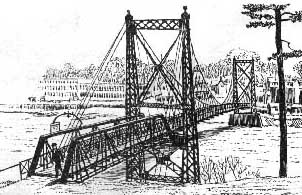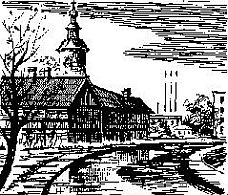 |
Kotlas - Waterville Area Sister City Connection P.O. Box 1747 Waterville, ME 04903-1747 Write to Us |
 |
 |
Kotlas - Waterville Area Sister City Connection P.O. Box 1747 Waterville, ME 04903-1747 Write to Us |
 |
|
Home > About Kotlas > History > Gulag > Sleigh Driver The Sleigh Driver's TaleBelow is the testimony of a teen-age boy, Aleksandr Dmitrievich ("Sanka") Chernykh, who was conscripted to drive a sleighful of deportees to a crude settlement in the deep woods. You try to forget, but it's impossible. You keep remembering, remembering, It was getting dark already, ten o'clock or eleven, when the sound of the wheels of a freight train shook the rails. Two steam locomotives hissed, let out puffs of steam, and stopped. And Red Army soldiers immediately rushed up to the wagons with rifles. "Get out, don't dilly-dally!" And half-undressed — they had on only light summer clothing — people began to jump down to the ground, like out of the frying pan into the fire, into the snow, into the "Two of the guards picked me," Aleksandr Dmitrievich relates, "they had sabers and revolvers. They had their eye out, undoubtedly for a sleigh. But what kind of a sleigh was it, if the horse was completely worn out in the legs, barely ran. And so we rode, not hurrying." And where was there to hurry to? The people walked slowly, with a sense of doom, not knowing, not understanding where, why, or for what. We passed by Solvychegodsk. At Zabolotye we stopped. Night in the outdoors — a break was needed. The guards put their sabers in the sleigh — why should people start idle chatter? — and they spread the people out into the courtyards for the night. "I wanted to throw out these sabers and head for home, but I caught myself just in time. Dawn had barely broken when they gathered everybody up and set out again for Kharitonovo. And deeper, deeper, into the backwoods. ("What kind of place this was, I have no idea"). But there was a settlement there: barracks, dug-outs with double bunks. "My fellow workers unloaded and went home, but the soldiers didn't let me go: 'you'll take us back.' I took them, how could I get out of it!." At dawn we caught sight of Zabolotye. And coming toward us — oh, what a horror! — carts loaded with bodies. One of the riders stops, picks up a dead body from the road, throws it across the sleigh like a birch block, and goes on farther. "Oh, and there were so many who had fallen," the narrator goes on, "some completely unclothed, some with only their outer clothing removed. How many people perished from hunger and cold at this halting place! When we went from Zabolotye to Pozdyshev, from Pozdyshev to Sol'vychegodsk, on both sides of the sleigh there were corpses, corpses, The seventy-six year old veteran from the village Kharikovska in the Pacheozersk village Soviet couldn't hold himself back; he told his story. He had tried to forget, but it didn't work. And how could anyone forget something like that? N. Valeryev, Dvinskaya Pravda, Dec. 15, 1992 This article was originally published under the title "It's Impossible To Forget." |
<— Previous • Top • Intro • Next —>